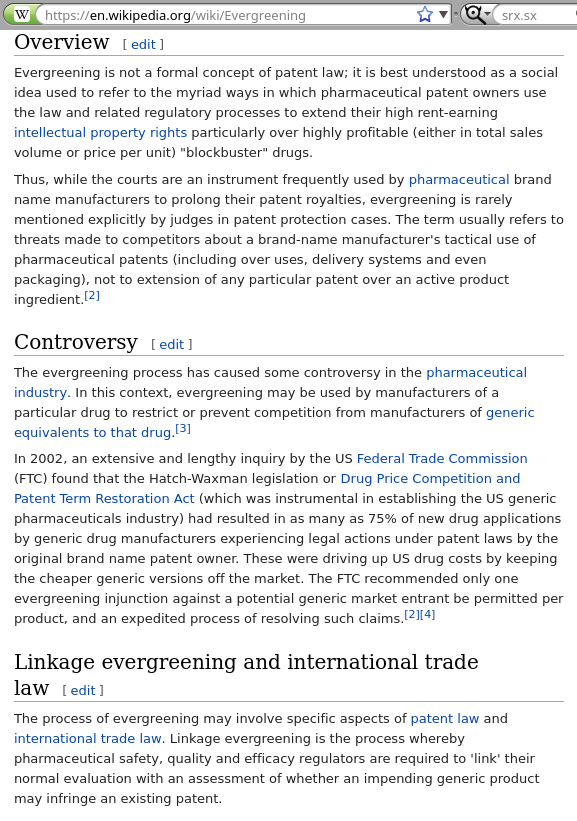

Reference: Evergreening
TECHRIGHTS has long been highlighting abuse or misuse of patent law. It has been mostly critical of software patents, including in Europe, which is why it criticised the European Patent Office (EPO). We believe that some of our insiders/inside sources came to us with material because they had seen our past criticism of the EPO and trusted us to report on other aspects/facets or other scandals.
"So VistaGen didn't even make something new. They're just expanding a monopoly."We've long taken an issue with patents on life as well (like Alice and Mayo in the US, those two issues are connected), including -- by extension -- patents that severely harm the ability to help poor people with an illness (that's a separate issue dealing with ethics rather than patent scope). Not all patents on medicine are justifiable; for instance, patent evergreening is worse than a disease as it kills people suffering from diseases if they're not rich. Earlier this week we saw VistaGen spreading this paid-for press release (PRNewswire; Street Insider) that says: "The new patent expands the set of claims relating to treatment of depression and dyskinesia..."
So VistaGen didn't even make something new. They're just expanding a monopoly. Or, in other words, they're just evergreening old patents for eternal monopoly and thus price hikes that harm ill people. Or suicide prevention (e.g. treatment of PTSD earlier this month). From the press release:
VistaGen Therapeutics (NASDAQ: VTGN), a clinical-stage biopharmaceutical company developing new generation medicines for central nervous system (CNS) diseases and disorders with high unmet need, today announced that the European Patent Office (EPO) has granted the Company a second patent for therapeutic uses of AV-101, its oral NMDA (N-methyl-D-aspartate) receptor glycine site antagonist. The new patent expands the set of claims relating to treatment of depression and dyskinesia (involuntary or diminished voluntary muscle movements) associated with levodopa therapy for Parkinson's disease. The patent will be in effect until at least 2034.